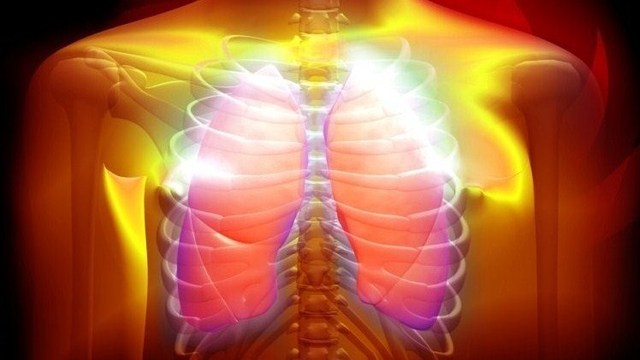What is Alpha-1 Antitrypsin Deficiency?
Simply, Alpha-1 Antitrypsin Deficiency is a genetic condition that affects the lungs and the liver.
In "normal" people, the liver produces the Alpha-1 protein (AAT). This protein travels to the lung via the bloodstream and keeps the lungs from becoming inflamed because of tobacco smoke and other irritants. When the gene responsible for production and release of this protein into the bloodstream is not working properly, the AAT builds up in the liver and decreases in the lungs eventually leading to irreversible damage to the tissues.
The condition only develops if both parents pass on defective genes to their children. If only one parent is a carrier, then the children will not develop the condition, but they will become carriers. Research indicates that about 20 million people have one normal and one defective AAT gene. It is estimated that one in every 2,500 Americans have Alpha-1 and about one in every 5,000 to 7,000 people across North America. Alpha-1 is not bound by culture or ethnic group - although the condition is less prevalent in black and asian populations.
Alpha-1 can often be misdiagnosed as asthma or smoking-related COPD and is the leading risk factor for emphysema. It is estimated that approximately 3 percent of all people diagnosed with COPD may actually have underlying Alpha-1. It is because of these findings that the World Health Organization (WHO), the American Thoracic Society (ATS), and the European Respiratory Society (ERS) have collaborated and agreed that all patients diagnosed with COPD be tested for Alpha-1.
It's in the Genes
Specifically, the production and regulation of Alpha-1 is done by the SERPINA1 gene. There are three versions (known as alleles) of the SERPINA1 - the M gene, the S gene, and the Z gene.
Most people have two M genes (MM) in each cell. It is the mutation and combination of the other two allele types that can lead to symptoms. The S allele produces moderately low levels of AAT; the Z allele produces very small amounts of AAT. It is those individuals with SZ or ZZ combinations of genes who will likely have full blown Alpha-1 Antitrypsin Deficiency, or (at least) be at increased risk for developing conditions like asthma, COPD, and emphysema.
Testing and Treatment of Alpha-1
Alpha-1 Antitrypsin Deficiency cannot be diagnosed by observing symptoms or standard medical evaluations. Only a blood test can show whether or not there are adequate amounts of AAT in the bloodstream. Further DNA testing will determine which combination of genes a person is carrying.
Common warning signs from alpha-1foundation.org and medicinenet.com include:
- shortness of breath
- wheezing
- chronic cough and phlegm production (bronchitis)
- recurring chest colds
- jaundice (yellowing of eyes and skin)
- swelling of abdomen or legs
- vomiting blood
- decreased exercise tolerance
- asthma that doesn't respond to treatment or year-round allergies
- unexplained liver issues or elevated liver enzymes
- bronchiectasis
- unintentional weight loss
- fatigue
- increased heart rate upon standing
- vision difficulties
Those people with the gene mutation that could lead to lung damage are more likely to experience onset of symptoms if they smoke. In fact exposure to tobacco smoke has been proven to accelerate the appearance of symptoms and lung damage.
There is no cure for Alpha-1. Common treatments include intravenous augmentation which is a weekly injection of purified AAT and use of common bronchodilators to assist with breathing and corticosteroids to help reduce inflammation. In more severe cases, lung and liver transplants are also options.
It is also important that those with Alpha-1 reduce their exposure to harmful irritants (cigarette smoke, dust, gases and fumes) and not smoke or quit smoking.
To determine the risk of passing along two defective genes to offspring, genetic counseling is available for couples to be tested to see what genes they carry and what the risk factors are of one or more children experiencing symptoms or being carriers.
Fing more information about how Alpha-1 affects the lungs, the liver and skin below.
Sources:
www.alpha-1foundation.org
www.labtestsonline.org
www.ncbi.nlm.nih.gov
www.medicinenet.com




Add a Comment2 Comments
If you're reading this excellent article from the UK, and you or a family-member have been diagnosed with Alpha-1 Antitrypsin Deficiency (AATD), then don't feel worried or alone. There is a registered Charity - Alpha-1 Awareness UK - which exists to support people like you, and your carers and family too. Join in, read and discuss, find out the facts and strategies, take part, or just learn and understand - it's all up to you, and we're here to help you. Find us at http://www.alpha1awareness.org.uk
May 5, 2010 - 1:08amThis Comment
Thank you for the link!
May 5, 2010 - 3:35amThis Comment